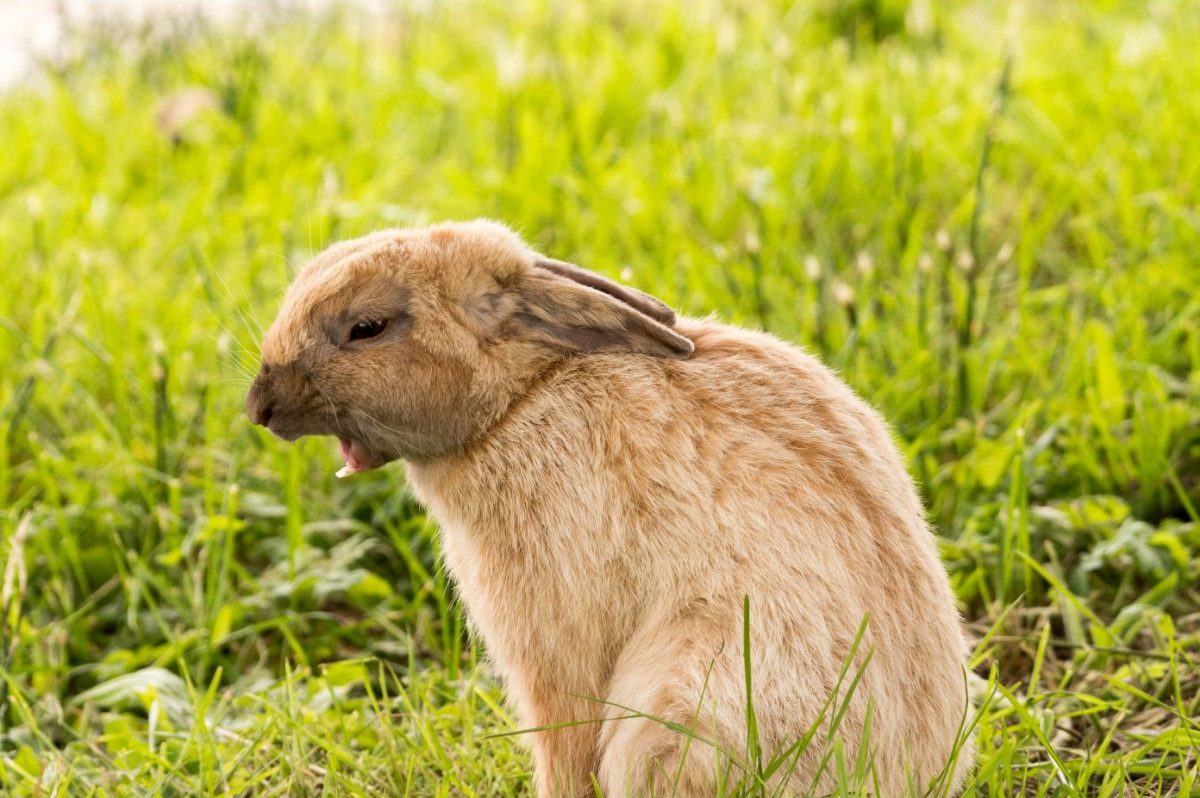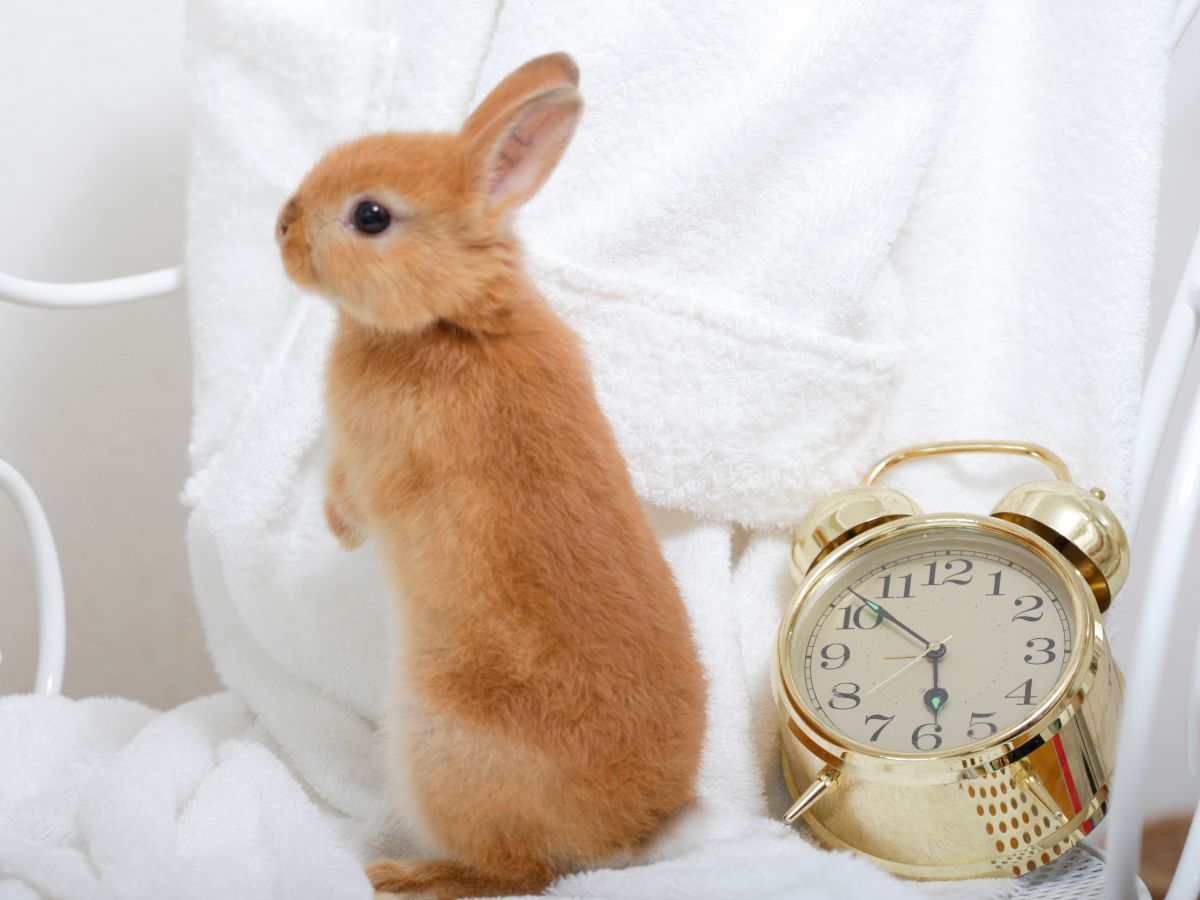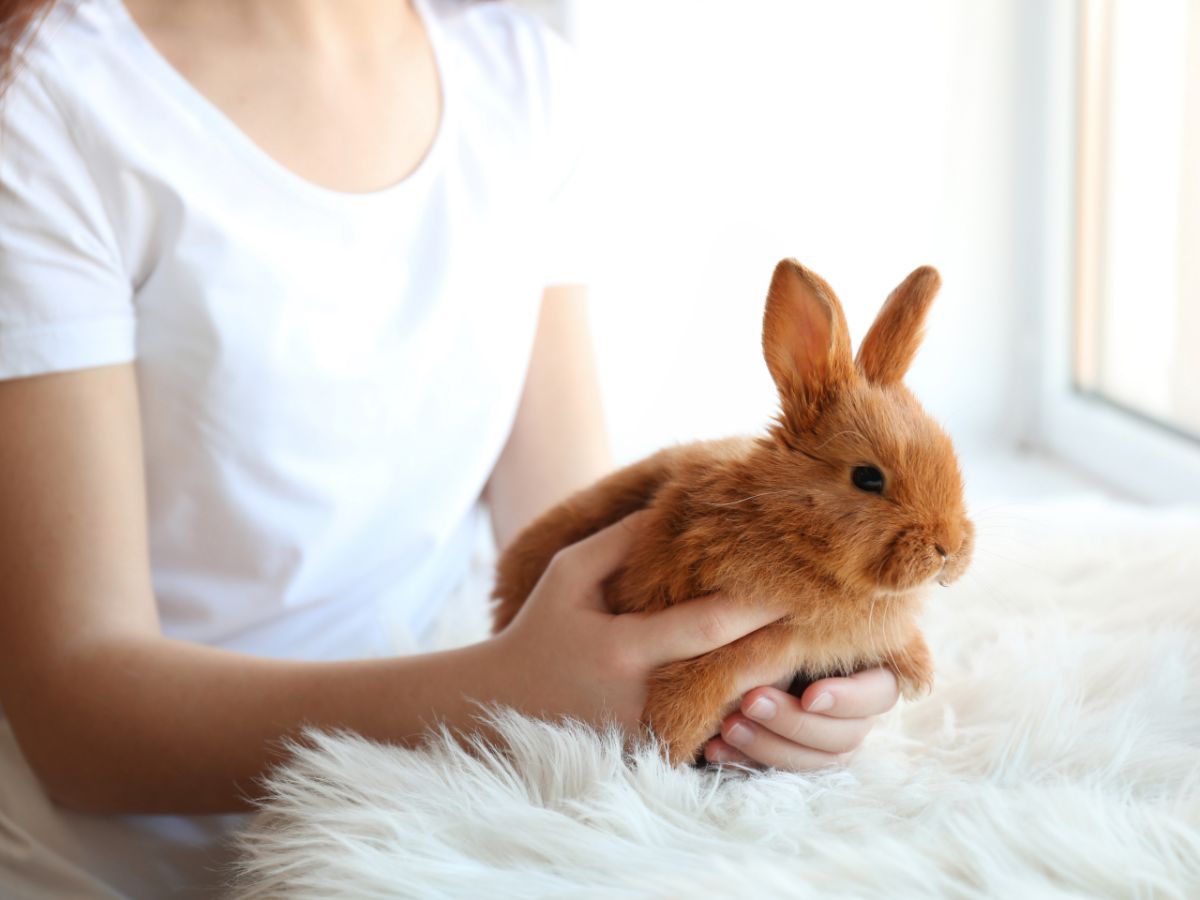Having a rabbit as a pet requires much more work than a kitten or puppy. They aren’t as easy to train as a dog and need more attention than a kitten, but like other pets, rabbits have rather sharp teeth and can bite hard, so are rabbit bites dangerous, and why do rabbits bite?
Rabbit bites aren’t usually dangerous unless the bite is deep. Rabbit bites are not very common though occasionally, you may encounter an aggressive rabbit. Rabbits will only bite or scratch as a last resort if they feel cornered or scared, and usually, it is superficial and rarely breaks the skin.
Basic first aid will be able to treat a rabbit bite. But deep rabbit bites will need extra attention to prevent infections, but most rabbit bites heal fast. Ask your doctor about rabies and other possible diseases if a wild rabbit were to bite you but let’s find out more about why rabbits may bite.
Contents
Are Rabbit Bites Dangerous?
A rabbit’s bite can be sore but doesn’t usually cause medical or health complications. Rabbit bites that break the skin hurt and can bleed; however, they aren’t usually deep enough for stitches and won’t require medical help.
Rabbit bites are only dangerous if the rabbit that bit you was:
- Not fully vaccinated
- A wild rabbit
- Showing signs of illness
- May have rabies and other diseases
If you have been bitten by an unknown rabbit and suspect it might be ill or infected, it would be best to seek medical help and get a tetanus shot or booster within 24 hours.
Why Do Rabbits Bite?
From needing to build trust to rabbits’ instincts and medical issues, there are a few different reasons rabbits may bite. Here are several reasons why rabbits bite:
Your Relationship With Your Rabbit: Building trust with your rabbit is important and can help prevent your rabbit from biting you. It is very important to read your rabbit’s body language to notice and respect them when they aren’t happy about something. It’s normal and common for your rabbit not to like close contact.
You can work on this and help them build more trust by handling them gently with every interaction. Make sure you aren’t picking them up against their will. It will make them stressed and trust you less. To prevent a fear response, your rabbit should be calm when you want to socialize. If they find the session traumatic, it will affect any future interactions and their behavior.
The Bunnies Natural Instinct: Happy and healthy Rabbits are usually not aggressive. But sometimes, even if your rabbits are well looked after, they may tend to bite, give a sharp nip or even lunge. To understand why your rabbit does this, you’ll need to understand its nature.
Most rabbits’ behavior is an act of fear of becoming food. When rabbits are restrained, chased, picked up, or subjected to quick unpredictable movements or a lot of noise, they can feel as if they are under attack, and it scares them. This can make them get defensive and bite you.
Medical Problems: There may be an underlying cause for your rabbit’s biting behavior. Illness or pain can cause a rabbit to be easily irritated and less able to tolerate a stressful situation. Any rabbit showing an aggressive attitude should get a full health check in case they are in pain. Ask your vet to look for abdominal pain, dental issues, and joint pain.
The aggression might also be hormonal. When a male and female rabbit reaches sexual maturity, the drive to protect their territories, mates, and food increases. This may become worse in male rabbits who are unneutered. Male rabbits become extremely sexually frustrated when they reach adolescence which adds to their stress levels. And that is one reason to get your rabbit neutered.
How To Prevent Aggression: When you give your rabbit a sense of independence, a choice on whether or not to be interacted with, and freedom of movement, it’ll teach them that they have nothing to fear. Do this by spending ample time with your rabbit on the floor. Avoid picking them up against their will.
There are ways your aggressive or shy rabbit can get used to your touch by stroking them gently while giving them a treat. Don’t react negatively or chase them if they hide or choose to run away. Try to reward them with special treats such as fresh herbs and dandelion leaves for these situations, so they associate the treats with your presence.
With patience, time, and a lot of gentle actions, your rabbit will become more comfortable and reduce aggression.
How To Stop Rabbits Biting
Even though rabbits don’t normally bite, there is still always a possibility your rabbit can. And in that case, here are some ways to identify the trigger and get your rabbit to stop biting:
- Identify what might trigger your rabbit: There are many reasons why your rabbit may be biting you or something, but if they bite aggressively, it is usually a response to them feeling threatened or scared. If you want your rabbit to stop biting, try and identify the trigger. Some triggers might be:
- Is your rabbit afraid of being picked up?
- Does your rabbit bite you when you try and reach into his\her cage?
- Does your rabbit get aggressive when you take away his\her food or feed him\her?
- Take notes of the situations that set off your rabbit and make him\her aggressive, and think about why your rabbit may feel scared or threatened in those situations.
- Calm your upset rabbit: When your rabbit shows aggression, you might be tempted to keep your distance. Yet, the best way to deal with this situation is to calm your rabbit down and show them affection. Over time, your rabbit will learn that there is no threat and has no need to be scared of you. Here is how to calm your rabbit:
- Be careful of your body language. You might think that putting your hand by your rabbit’s nose to introduce yourself may be good, especially if you are used to dogs and cats. But a rabbit may see this as a threat.
- A dominant rabbit would shove his face into a subsidiary rabbit’s face as an act of aggression. So if you were to shove your hand near your rabbit’s nose, they might think you’re doing the same.
- Rather keep your hands behind your rabbit’s ears, far away from their nose.
- If your rabbit appears frightened near you, stroke its head gently from above, make sure to avoid its face, and talk in a soft, soothing voice.
- Offer your rabbit treats: Giving your rabbit can soothe or distract it from being aggressive. Over time, your rabbit will learn that it will be rewarded with treats when you pick it up. Here are some ways to give it treats:
- Find a treat that your rabbit enjoys. It should be a special treat, not something you feed daily.
- Put the treat into a tin and shake the tin to make a rattling sound whenever you are about to approach your rabbit.
- Start to associate the rattling treat when your rabbit is in a good mood, so eventually, you can use the treat to calm your rabbit.
- Continue to associate the rattling with the treat so your rabbit will come to you when you shake the tin. And eventually, you’ll be able to use this trick to calm your rabbit down when needing to clean the cage or pick your rabbit up.
Conclusion
There is no need to fear if your vaccinated indoor bunny bites you, but it is a great idea to ensure your tetanus vaccine is up to date to keep you safe and at peace.
Rabbits are gentle and calm as pets, and with regular interaction and some basic training, there is no reason your rabbit will want to bite.




